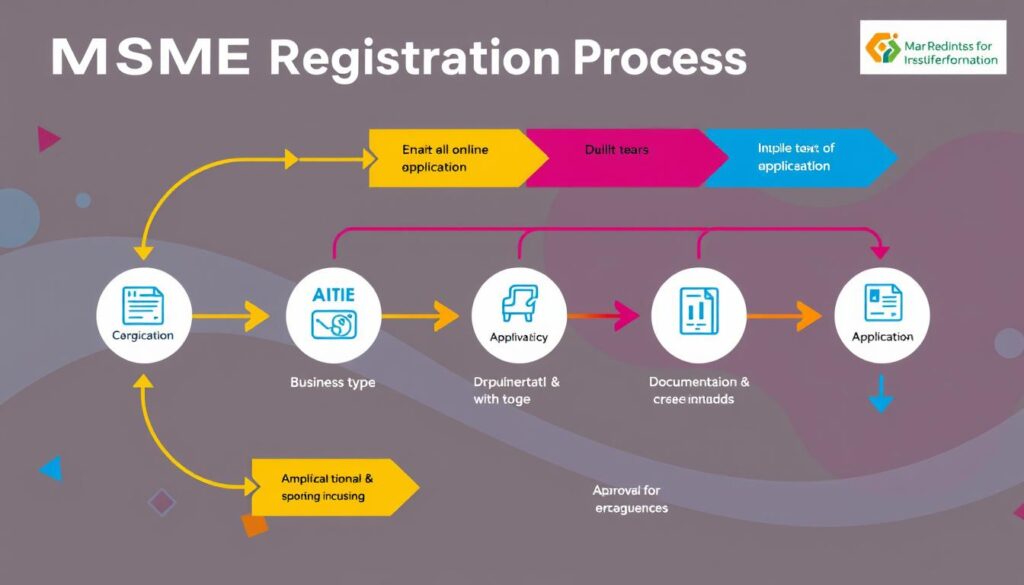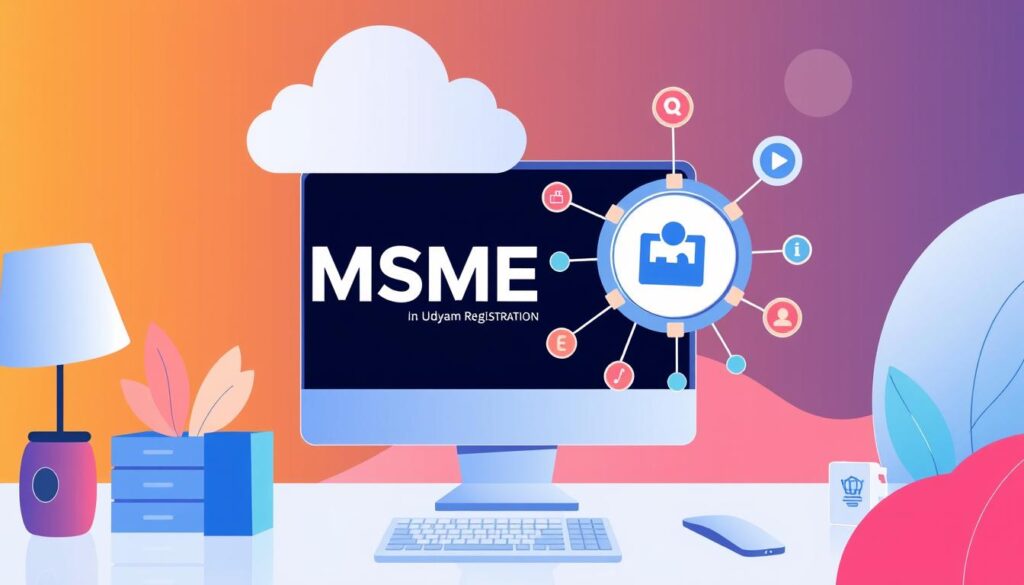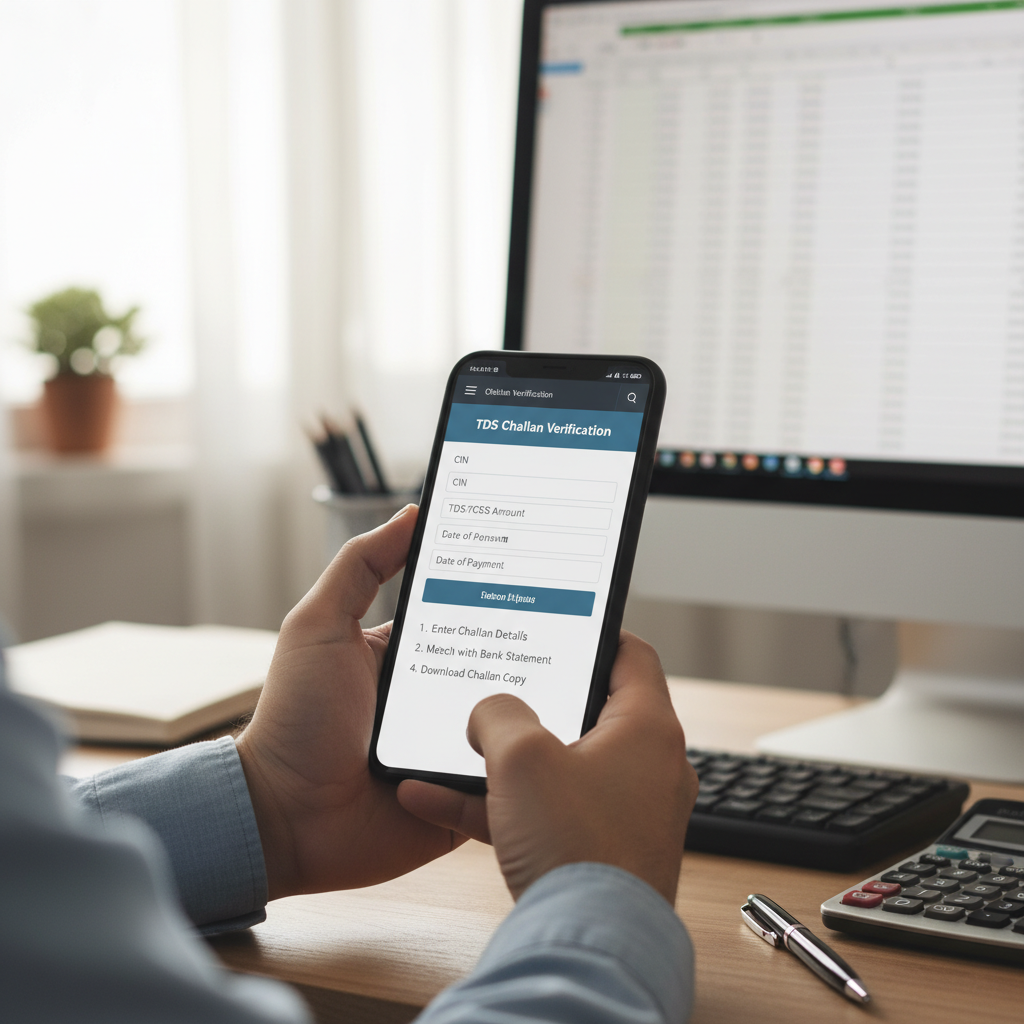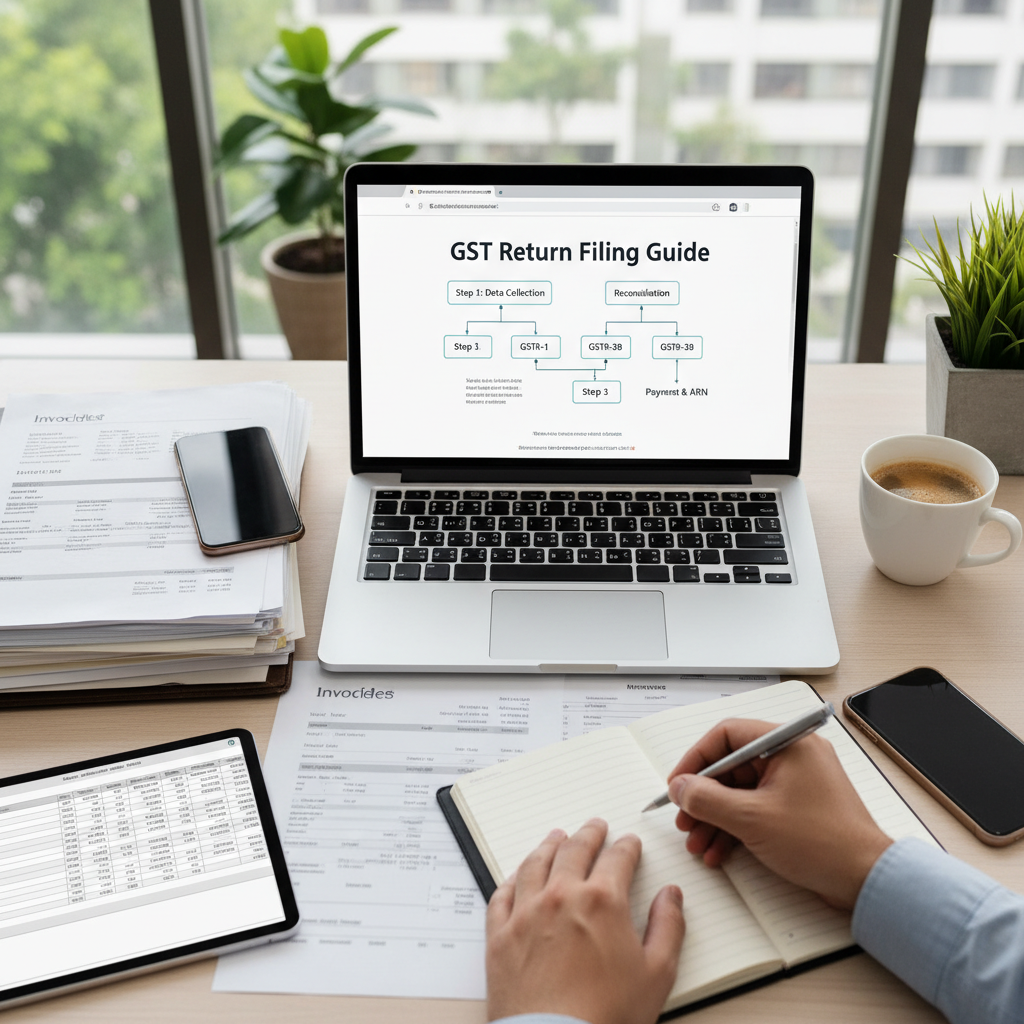As of April 2024, businesses have a deadline to file MSME Form 1. The deadline for the second half-year is April 30, 2025. Failing to comply can lead to fines up to Rs. 3 lakhs and even jail time for directors.
Understanding how to apply for MSME registration online is crucial. The online form helps businesses get recognized and access government schemes and better credit terms. Bajaj Finance, trusted by over 50 million, makes this process easy with their digital platforms.
The Udyam registration process is designed to be efficient and accessible. It’s a key step for businesses looking to grow in India’s dynamic economy. Is your business ready to register? Does it meet the eligibility criteria? Let’s explore how to successfully register your MSME.
Understanding MSME Registration and Its Importance
The MSME registration process is key for small businesses in India. It’s under the MSMED Act of 2006. It helps small businesses get benefits to grow the economy.
Definition of MSME Registration
MSME registration classifies businesses based on their investment. It’s about plant and machinery in manufacturing or services. The government sets these limits to help businesses get government support.
Benefits of MSME Registration for Businesses
Being part of the MSME registry brings many benefits. These are important for a business to grow and stay stable. Here are some main advantages:
- Financial Incentives: lower interest rates, subsidies, easier bank loans, and government grants.
- Fiscal Benefits: tax exemptions, lower fees, and no direct tax in the first year.
- Access to Schemes: government schemes like Credit Guarantee Trust Fund and Technology Upgradation. They also get priority in tenders.
- Empowerment through Support: help with technology, skills, and marketing.
These benefits show why MSME registration is crucial. It helps businesses grow and stay strong. It’s a key move for small and medium enterprises in India.

Also, registering with the government is easier now. The process is digital. This makes following rules simpler and faster. So, MSME registration is not just a rule. It’s a big plus for businesses.
Eligibility Criteria for MSME Registration
To get the benefits of the Indian government, micro small and medium enterprises must meet certain criteria. Knowing and following these rules helps businesses register successfully.
Investment and Turnover Limits for Micro, Small, and Medium Enterprises
To qualify as a micro small or medium enterprise, businesses must meet financial standards. These standards are based on investment in equipment and annual sales:
| Type of Enterprise | Investment Limit | Turnover Limit |
|---|---|---|
| Micro Enterprise | Up to Rs. 1 crore | Less than Rs. 5 crore |
| Small Enterprise | Up to Rs. 10 crore | Less than Rs. 50 crore |
| Medium Enterprise | Up to Rs. 50 crore | Less than Rs. 250 crore |
Following these rules is key. It lets businesses get benefits like easier credit, tax breaks, and government contracts. It also shows they are part of the MSME group, helping them grow.

Also, many types of businesses can register as MSMEs. This includes solo entrepreneurs, partnerships, and even big companies. This shows the Indian government wants to help all kinds of businesses grow.
Registering as an MSME is easy online through the Udyam Portal. It helps new and existing businesses. Meeting the criteria is the first step to get help from the Indian government.
Documents Required for MSME Registration
To register your MSME, you need to know what documents are required. Having the right documents makes the application process easier. We will cover the key documents needed and why they are important.
Aadhaar Card and PAN Card of the Business Owner
Getting your business registered in India starts with identification and tax details. The Aadhaar card is a must for identifying you. The PAN card is needed for tax purposes.
Business Address Proof and Registration Documents
You need proof of where your business is located. This could be a utility bill or a lease. If your business is registered, you’ll need to provide documents like the Partnership Deed and Memorandum of Association.
Here’s a table with more details on what you need for MSME registration:
| Document | Requirement | Description |
|---|---|---|
| Aadhaar Card | Mandatory | Unique identity proof for the owner, required at the initial stage of the registration. |
| PAN Card | Mandatory | Tax identification number for the business or individual, needed for financial and tax transactions. |
| Utility Bill/License | Optional | Acts as a business address proof if other documents are not available. |
| Partnership Deed/MoA/AoA | Required for registered businesses | Defines the constitution or legal standing of the business, crucial for registered entities. |
| Machinery and Purchase Bills | If applicable | Supports the claim of investment in the business, needed for defining the category of MSME. |
This detailed documentation ensures accurate verification and registration. It makes your business operations smoother. You may also get benefits like easier credit access and tax rebates.
Step-by-Step Guide on How to Apply for MSME Registration Online
Starting the journey of MSME registration online is key for many business owners in India. The Udyam Registration Portal has made this process easier. This guide will help entrepreneurs fill out the online MSME application form smoothly.
Accessing the Udyam Registration Portal
The first step is to visit the Udyam Registration Portal. Since July 2020, it’s the only place to register for MSME. You’ll need your Aadhaar number to start. Logging in is simple, and you can begin your registration.
Filling Out the MSME Registration Form
The portal’s online form is easy to use. You’ll need to enter your Aadhaar and PAN, and choose your business type. You’ll also need to provide your business details, like address and bank information.
Submitting the Application and Required Documents
After filling out the form, you’ll need to upload documents. These include your ID, address proof, and any business licenses. Once you’ve uploaded everything, you’ll confirm your details digitally. This confirms your application is complete, and you’ll get a reference number to track your status.
By following these steps, you ensure your MSME application is submitted correctly. This process not only meets legal requirements but also opens up many benefits, like priority lending and tax rebates.
Processing Time and Status Tracking
After applying online, you can check your msme registration status on the Udyam Registration portal. This platform makes it easy to see where your application is in the process. It helps keep things clear and efficient.
The udyam registration benefits are clear when you see how it works with Income Tax and GSTIN. Logging in with your Aadhaar number gives you updates on your application’s status in real-time.
| Enterprise Type | Investment in Equipment | Turnover | Registration Fee |
|---|---|---|---|
| Micro | Rupees ₹1 crore | Rupees ₹5 crore | No fee |
| Small | Rupees ₹10 crores | Rupees ₹50 crores | No fee |
| Medium | Rupees ₹50 crores | Rupees ₹250 crores | No fee |
Businesses of all kinds can register without paying a fee. Plus, you don’t need to renew your registration. This makes it easier for businesses to focus on growing.
Make sure your application details match your Aadhaar and GSTIN. Any mistakes can cause delays or penalties. The msme registration status check helps you stay on top of these important details.
Knowing what makes a business micro, small, or medium is key. It helps you plan your investments and sales to get the most from udyam registration benefits.
The Udyam portal is more than just for registration. It helps with ongoing compliance, which is vital for getting the most out of udyam registration benefits.
How to Download the MSME Registration Certificate
After your MSME registration is approved, getting your official certificate is easy. You can do this through the Udyam Registration Portal. This certificate is key for MSMEs to get government schemes and benefits. Here’s how to download and print your Udyam certificate.
Logging into the Udyam Registration Portal
First, go to the Udyam Registration Portal. Log in with your Udyam Registration Number and the mobile number you registered with. You’ll get an OTP to make sure your account is secure.
Generating and Downloading the MSME Certificate
Once logged in and verified, you can download or print your certificate. Choose ‘Print with Annexure’ for a complete document. This is important for verification and applying for benefits.
The download option is easy to use, giving you a PDF certificate. For printing, the portal lets you send it directly to your printer. This makes sure your certificate and annexure are printed well.
This change makes managing MSME certificates easier. It’s part of the government’s push for digital and paperless work. It helps with paperwork and is good for the environment too.
By following these steps, MSME owners can stay compliant. They can also focus on growing their business and using government benefits for small and medium enterprises.
Post-Registration Compliance and Renewal
After registering under the MSME sector, it’s key to stay compliant and renew your registration. Knowing and following the msme registration renewal, msme annual compliance, and msme post-registration rules is crucial. This helps you get the most out of your registration and keep your business running smoothly.
Annual Filing Requirements for MSME-Registered Businesses
Keeping up with post-registration compliance means making annual filings. These filings are vital for keeping your benefits. MSMEs must update their info on the Udyam Registration portal each year. This includes changes in investment, turnover, and business activities.
Not updating by March 31st can lead to losing your MSME Certificate. The msme registration renewal process is simple but very important. It keeps your business in line with market and legal standards. Here are the main steps and why timely renewal is so important:
| Aspect | Details |
|---|---|
| Renewal Importance | Ensures ongoing access to government subsidies, schemes, and compliance with legal requisites. |
| Procedure | Update business details on Udyam Portal, including ITR and GSTR filings, and download the updated registration certificate. |
| Key Updating Details | Investment, turnover, exports, organizational info, and relevant financials auto-populated from tax databases. |
| Non-editable Information | PAN of the organization, entrepreneur’s Aadhar and name, and office location (to district & state level). |
| Benefits of Timely Renewal | Continued market access, legal compliance, enhanced credibility, and eligibility for competitive government incentives. |
| Common Challenges | Technical issues on the portal, time-intensive documentation, updates in regulations. |
| Professional Assistance | Seeking expert help can streamline the renewal process, ensuring accuracy and compliance. |
Regular msme annual compliance boosts your business’s market position and avoids legal issues. It’s more than just keeping your registration. It’s about growing your business’s credibility and reach in the industry.
Common Mistakes to Avoid During MSME Registration
Starting the MSME registration journey needs careful attention and following rules for a smooth process. Avoiding common mistakes can help your business succeed. It also lets you use the benefits meant for small and medium enterprises.
Providing Incorrect or Incomplete Information
Being accurate in the MSME registration is key. Mistakes like wrong personal or business details can cause delays or even rejection. It’s important to check all information carefully to avoid problems.
Not Meeting the Eligibility Criteria
Many businesses fail because they don’t understand the eligibility rules. Each MSME category has its own investment and turnover limits. Getting these wrong can lead to your business being misclassified and missing out on benefits.
In summary, being thorough and accurate in your MSME registration is essential. Getting help from professionals can reduce the chance of mistakes. A correct and compliant application is the first step to getting government support and financial benefits for your business.
MSME Registration and Access to Government Schemes
In India, MSME registration is key for small businesses. It makes them official and opens doors to government help. This includes special loans and support for growth.
Credit Guarantee Scheme and Subsidies for MSME-Registered Businesses
One big plus of MSME registration is the Credit Guarantee Fund Trust. It helps small businesses get loans without needing collateral. This makes it easier for them to borrow money from banks.
Also, MSME registration lets businesses get subsidies. These can lower costs, make them more competitive, and help them stay in business. There are subsidies for buying new equipment and even for patents and setting up industries.
- More credit available through the msme credit guarantee scheme.
- 15% subsidy on new machinery and technology.
- Lower interest rates on loans.
- Easier access to funding as priority sector lending.
- Access to government-sponsored training programs.
Getting MSME registration is a big step for small businesses in India. It helps them grow and innovate. It gives them a chance to succeed within the rules set by the government.
Role of MSME Registration in Securing Business Loans
For small and medium enterprises, getting business loans for MSMEs is easier with MSME registration. This step opens doors to many financial aids. It also makes the business more credible and visible, attracting credit facilities. Let’s explore how MSME registration for credit benefits businesses, especially in getting loans.
Enhanced Credibility and Visibility for Loan Applications
MSME registration is more than just a formality. It’s a sign of legitimacy that banks and lenders look for. It shows that a business is recognized and trustworthy. This makes it more likely to get loans and government support.
Being registered also makes a business seem more reliable and standard-compliant. This is key in a competitive market where getting loans is tough.
Government schemes help registered MSMEs a lot. They offer loans and support that give these businesses an edge:
| Scheme | Support Offered | Relevance to MSMEs |
|---|---|---|
| Pradhan Mantri Mudra Yojana (PMMY) | Loans categorized into Shishu, Kishor, and Tarun for different loan amounts up to Rs. 10 lakhs. | Facilitates micro-units in scaling operations with appropriate financial aids. |
| Credit Guarantee Trust Fund for Micro & Small Enterprises (CGT MSE) | Provides 50% to 85% guarantee coverage of the sanctioned loan amount. | Reduces the risk for lenders, encouraging them to offer loans to MSMEs. |
| Credit Linked Capital Subsidy Scheme (CLCSS) | 15% upfront capital subsidy for technology upgradation up to Rs. 1 crore investment. | Supports MSMEs in adopting new technologies, enhancing overall productivity and market competitiveness. |
| Equity Infusion through Fund of Funds | Aims to leverage Rs. 50,000 crore for MSMEs from private sector investments. | Provides equity funding, crucial for businesses looking to expand but lacking substantial collateral. |
| Credit Guarantee Scheme for Subordinate Debt (CGSSD) | 90% guarantee for sub-debt provided to stressed MSMEs. | Helps revitalise MSMEs struggling with debt, enabling recovery and sustainable operation. |
The enhanced MSME visibility from registration puts these businesses in the spotlight for financial growth. MSME registration is key for small businesses. It’s not just for following rules but for getting a strong financial base in the market.
Conclusion
MSME registration is key for small and medium businesses in India. It opens doors to many benefits. Following the guide closely is crucial, from meeting the criteria to submitting the right documents.
The MSME sector is vital, making up 30% of India’s GDP. It supports many businesses, helping them grow in a tough market.
Registering as an MSME lets businesses get government help and loans. The government offers support through schemes and funds. This includes the CHAMPIONS portal and Udyam registration, making it easier to succeed.
Getting an MSME certificate is important for loans, tenders, and credibility. It shows a business is trustworthy and capable. The whole process, from GST to Udyam registration, is a smart step towards success in India’s changing economy.
FAQ
Q: How do I apply for MSME registration online for the period 2024-2025?
Q: What is MSME registration, and why is it important for businesses?
Q: What are the eligibility criteria for registering as an MSME?
Q: What documents are required for MSME registration?
Q: What is the process for filling out the MSME registration form online?
Q: How can I check the status of my MSME registration application?
Q: After MSME registration, how do I download the MSME registration certificate?
Q: What are the annual filing and compliance requirements for MSME-registered businesses?
Q: What common mistakes should be avoided during the MSME registration process?
Q: How does MSME registration help in accessing government schemes?
Q: What role does the MSME registration play in securing loans for my business?
Please Rate this post
Click to rate











